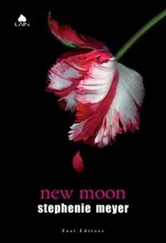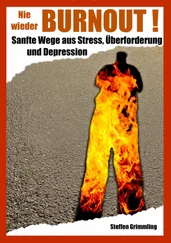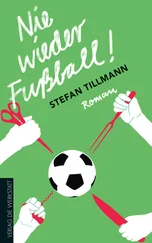Stephen Fovargue - A New Catalogue of Vulgar Errors
Здесь есть возможность читать онлайн «Stephen Fovargue - A New Catalogue of Vulgar Errors» — ознакомительный отрывок электронной книги совершенно бесплатно, а после прочтения отрывка купить полную версию. В некоторых случаях можно слушать аудио, скачать через торрент в формате fb2 и присутствует краткое содержание. Жанр: Старинная литература, foreign_antique, foreign_prose, на английском языке. Описание произведения, (предисловие) а так же отзывы посетителей доступны на портале библиотеки ЛибКат.
- Название:A New Catalogue of Vulgar Errors
- Автор:
- Жанр:
- Год:неизвестен
- ISBN:нет данных
- Рейтинг книги:4 / 5. Голосов: 1
-
Избранное:Добавить в избранное
- Отзывы:
-
Ваша оценка:
- 80
- 1
- 2
- 3
- 4
- 5
A New Catalogue of Vulgar Errors: краткое содержание, описание и аннотация
Предлагаем к чтению аннотацию, описание, краткое содержание или предисловие (зависит от того, что написал сам автор книги «A New Catalogue of Vulgar Errors»). Если вы не нашли необходимую информацию о книге — напишите в комментариях, мы постараемся отыскать её.
A New Catalogue of Vulgar Errors — читать онлайн ознакомительный отрывок
Ниже представлен текст книги, разбитый по страницам. Система сохранения места последней прочитанной страницы, позволяет с удобством читать онлайн бесплатно книгу «A New Catalogue of Vulgar Errors», без необходимости каждый раз заново искать на чём Вы остановились. Поставьте закладку, и сможете в любой момент перейти на страницу, на которой закончили чтение.
Интервал:
Закладка:
Now the Climate is hotter at the Æquator than in high Latitudes, on Account of the Inclination of the Poles to the Sun, as has been said before: What I would urge is, that the Surface of the Earth, at ten Degrees on this Side of the Poles, is as much or nearly as much inclined to the Plain of the Ecliptic as the Poles themselves.
If that is the Case, no Reason can be given why the Poles should be colder than Greenland, where, if we may believe the Accounts of Navigators, though in the Winter the Cold is so intense as to freeze Brandy, yet, in the middle of Summer it is sometimes so hot, that People have been glad to strip off their Cloaths, for an Hour or two in a Day, in order to go through their Work. But to return to the Surmise, that the Poles are no colder than ten Degrees on this Side of them, on Account of the Spheroidical Figure of the Earth.
I must trouble the Reader with a very plain Figure, in order to illustrate the Meaning of this.
By this Figure we may observe, that any Rays of the Sun A, which fall upon a Place situated ten Degrees on our Side of the Pole B, and Rays which fall on the Pole itself, do not make so large an Angle, as they would if the Form of the Earth was a Sphere; for if we extend the two Points B and C so far as to make a compleat Sphere, we must be obliged likewise to move the Line D along with it to the Point E, which would make a larger Angle, and in that Case the Surface of the Earth at the Pole B would be more inclined to the Plain of the Ecliptic than it is, and consequently it would be colder, as the Cause of Heat and Cold in different Parts of the Globe is owing to the Inclination of the Poles to the Plain of the Ecliptic, and not to the Distance of the Sun from the Earth at the different Seasons of the Year; for if that was the Case, we should have colder Weather in July than we have in December, the Sun being rather nearer to us in Winter than in Summer.
I hope that this little Philosophical Effort, which has been made here, will not be looked upon as unseasonably introduced in this Place; and I likewise hope, that while I gaze with Wonder on the stupendous Frame of the Universe, I shall not be thought presumptuous in having taken a little Survey of one of the Wheels which duly performs it's Revolutions in that glorious Machine, the Solar System; the exact and regular Movements of which inspire the curious Beholder with a more awful Idea of the Greatness of the Fabricator, than it is possible for any one to conceive, who is entirely ignorant of the Accuracy of the Construction.
VII
That the more Hay is dried in the Sun, the better it will be.
As Hay is an Herb which is dried in order to lay up all the Winter, when it cannot be found in the Fields, and as it is intended for the Food and Nourishment of Animals, that Nourishment must consist of such of the Juices as are left behind in the Herb.
It is very possible, by the Art of Chemistry, to extract from Hay all the separate Salts, Spirits, &c. of which it is composed. Now in a Chymical Preparation, there is always something left behind in the Still, out of which it is impossible to extract any more Juices; that the Chymists call Caput Mortuum. This Caput Mortuum is of no Service, and is entirely void of all those Salts and Spirits with which every other Substance on the Surface of the Earth abounds more or less.
The Sun acts upon Bodies much in the Nature of a Still. He, by his Heat, causes the Vapours of all Kinds, which any Substance contains, to ascend out of their Residences into the Atmosphere, to some little Height, from whence either the Wind carries them, if there is any, or if there is no Wind, they fall down again Upon the Earth by their own Weight, at Sun-set, and are what is called Dew.
Since this is the Case, and the Sun acts upon Bodies in the same Manner as a Still, we should take Care not to make Caput Mortuum of our Hay, by exposing it too long to his Rays; for by that Means we shall extract from it most of those Salts Spirits of which Food must consist, and of which all Animal Substance is composed.
The Botanists are sensible of this: When they dry their Herbs, they lay them in a Place where no Sun can come to them, well knowing that too much Sun would take off their Flavour, and render them unfit for their different Physical Uses. Not that Hay would be made so well without Sun, on Account of the Largeness of the Quantity, and at the same Time it ought to be dryed enough, and no more than enough; for it is as easy to roast Hay too much as a Piece of Meat.
VIII
That the Violin is a wanton Instrument, and not proper for Psalms; and that the Organ is not proper for Country-Dances, and brisk Airs.
This Error is entirely owing to Prejudice. The Violin being a light, small Instrument, easy of Conveyance, and withal much played upon in England, and at the same Time being powerful and capable of any Expression which the Performer pleases to give it, is commonly made Use of at Balls and Assemblies; by which Means it has annexed the Idea of Merriment and Jollity to itself, in the Minds of those, who have been so happy as to be Caperers to those sprightly English Airs, called Country Dances.
The Organ, on the other Hand, being not easily moved on Account of it's Size, and expensive on Account of the complicated Machinery which is necessary to the Construction of it, is not convenient for Country Dances; and at the same Time being loud, capable of playing full Pieces of Music, Choruses, Services, &c. is made Use of in most Churches where the Inhabitants can afford to purchase this fine Instrument.
Nevertheless, notwithstanding these great Advantages, two or three Violins and a Bass, are more capable of performing any solemn Hymn or Anthem than an Organ; for the Violin, as has been before observed, is capable of great Expression, but especially it is most exquisitely happy in that grave and resigned Air, which the common Singing-Psalms ought to be played with. When the Bow is properly made Use of, there is a Solemnity in the Strokes of it, which is peculiar to itself. And on the other Hand, on Account of the Convenience of Keys for the Readiness of Execution, nothing can be more adapted to the Performance of a Country-Dance, than an Organ. For the Truth of which Assertion I appeal to those who have been so often agreeably surprized with those sprightly Allegros, in the Country-Dance Style, with which many Organists think fit to entertain the Ladies, in the middle of Divine Service.
If Jack Latten is played at all, it is Jack Latten still, whether it be played in Church or in an Assembly Room; and I am only surprized, that People can so obstinately persist in the Denial of a Thing, concerning the Truth of which it lies in their Power to be convinced every Sunday.
IX
That the Organ and Harpsichord are the two Principal Instruments, and that other Instruments are inferior to them in a Concert.
Notwithstanding the great Advantage which these Instruments have of playing several Parts together, there is nevertheless one Imperfection which they have, or rather they want one, or more properly a thousand Beauties contained in one Word; which is no less material an Article than that of Expression.
There is no Word more frequently in the Mouths of all Sorts of Performers, than this of Expression; and we may venture to affirm, that it is as little understood as any one Term which is made Use of, in the Science of Music.
Above three Parts in four make Use of it, without having any Meaning of their own, only having heard some one else observe, that such or such a Person plays with great Expression, they take a Fancy to this new adopted Child, and become as fond of it, as if it was the legitimate Offspring of their own Brain. Some who are more considerate, think that the Meaning of it entirely consists in playing Staccato; and indeed these People come nearer the Mark than the others, but they have not picked up all the Meaning of the Word.
Читать дальшеИнтервал:
Закладка:
Похожие книги на «A New Catalogue of Vulgar Errors»
Представляем Вашему вниманию похожие книги на «A New Catalogue of Vulgar Errors» списком для выбора. Мы отобрали схожую по названию и смыслу литературу в надежде предоставить читателям больше вариантов отыскать новые, интересные, ещё непрочитанные произведения.
Обсуждение, отзывы о книге «A New Catalogue of Vulgar Errors» и просто собственные мнения читателей. Оставьте ваши комментарии, напишите, что Вы думаете о произведении, его смысле или главных героях. Укажите что конкретно понравилось, а что нет, и почему Вы так считаете.












